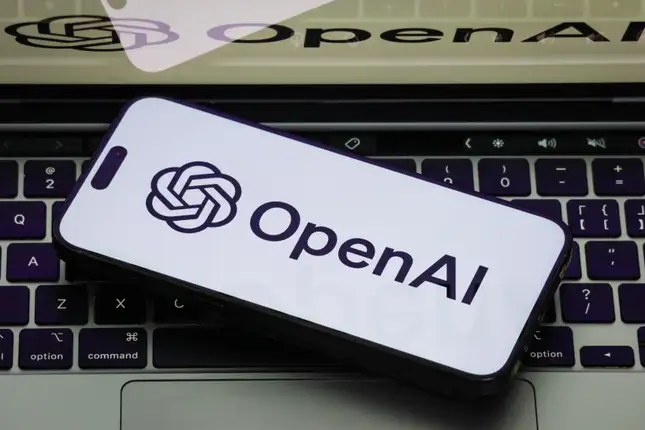OpenAI, the creator of ChatGPT, has officially won a $200 million contract from the United States Department of Defense (DoD) to develop advanced artificial intelligence tools aimed at addressing critical national security challenges.
The one-year agreement, announced on Monday, marks OpenAI’s first official defence contract and a major expansion of its government partnerships under a new initiative called “OpenAI for Government”.
Contract details and scope
According to the Pentagon, the contract tasks OpenAI with creating “prototype frontier AI capabilities to address critical national security challenges in both warfighting and enterprise domains.”
The work will primarily be conducted in the Washington, D.C. metropolitan area, with an estimated completion date of July 2026. The Department of Defense’s Chief Digital and Artificial Intelligence Office (CDAO) is the contracting authority for this deal.
The DoD statement emphasised that this contract “will bring OpenAI’s industry-leading expertise to help the Defense Department identify and prototype how advanced AI can revolutionize its administrative functions,” including improving healthcare access for service members and their families, optimising program and acquisition data analysis, and supporting proactive cyber defense.
OpenAI’s official statements
In a blog post announcing the contract, OpenAI described this partnership as the inaugural project under its “OpenAI for Government” programme, which consolidates its existing collaborations with federal, state, and local agencies.
The company said the initiative aims to empower public servants by providing access to its most advanced AI models, including ChatGPT Enterprise and ChatGPT Gov, within secure and compliant environments.
OpenAI stated: “This contract marks an important milestone in our mission to bring the benefits of AI to government. We look forward to working closely with the Department of Defense to develop AI solutions that can help improve the day-to-day experience of public service and support critical national security missions.”
The company also highlighted that all applications under this contract will adhere strictly to OpenAI’s usage policies, which prohibit using its AI to develop or deploy weapons or to cause harm.
Pentagon and industry context
The $200 million contract was awarded after a competitive process involving 12 offers, underscoring the Pentagon’s growing commitment to integrating frontier AI technologies into defense operations.
The deal follows OpenAI’s recent partnership with defense technology firm Anduril Industries to develop AI-powered anti-drone systems, signaling a strategic pivot toward national security applications after previously restricting military use of its technology.
The DoD’s CDAO, established in 2022 to coordinate AI efforts across the military, described this contract as a key step toward accelerating AI adoption in both administrative and frontline warfighting roles.
A CDAO official told Breaking Defense that OpenAI’s work will include prototyping “agentic workflows,” or semi-autonomous AI agents that can perform routine tasks traditionally handled by humans.
With this contract, OpenAI is positioned to play a pivotal role in shaping how AI transforms government and defense functions. The company concluded its announcement by stating:
“We are just getting started, and we look forward to helping U.S. government leaders harness AI to better serve the public.”
What OpenAI’s Pentagon contract could mean for Africa
OpenAI’s $200 million contract with the US Department of Defense signals a growing global race to harness artificial intelligence for national security and government efficiency.
While the deal is focused on US military and administrative applications, it also highlights broader trends that African governments and tech sectors should watch closely.
Across Africa, governments are increasingly exploring AI to improve public service delivery, enhance cybersecurity, and modernize defense capabilities. Countries like Nigeria, Kenya, South Africa, and Rwanda have launched AI strategies and innovation hubs, aiming to leverage technology for economic growth and security.
However, Africa faces unique challenges in adopting advanced AI systems at scale. Infrastructure gaps, limited access to high-quality data, and concerns about digital sovereignty and ethical AI use remain significant hurdles.
The dominance of foreign AI providers like OpenAI in government and defense sectors globally raises questions about how African states can build local capacity and ensure technologies align with their specific needs and values.
OpenAI’s partnership with the US. military underscores the strategic importance of AI in national security, a lesson African policymakers can take seriously.
It also serves as a reminder of the need for African governments to develop clear policies and frameworks around AI governance, balancing innovation with privacy, security, and human rights.











